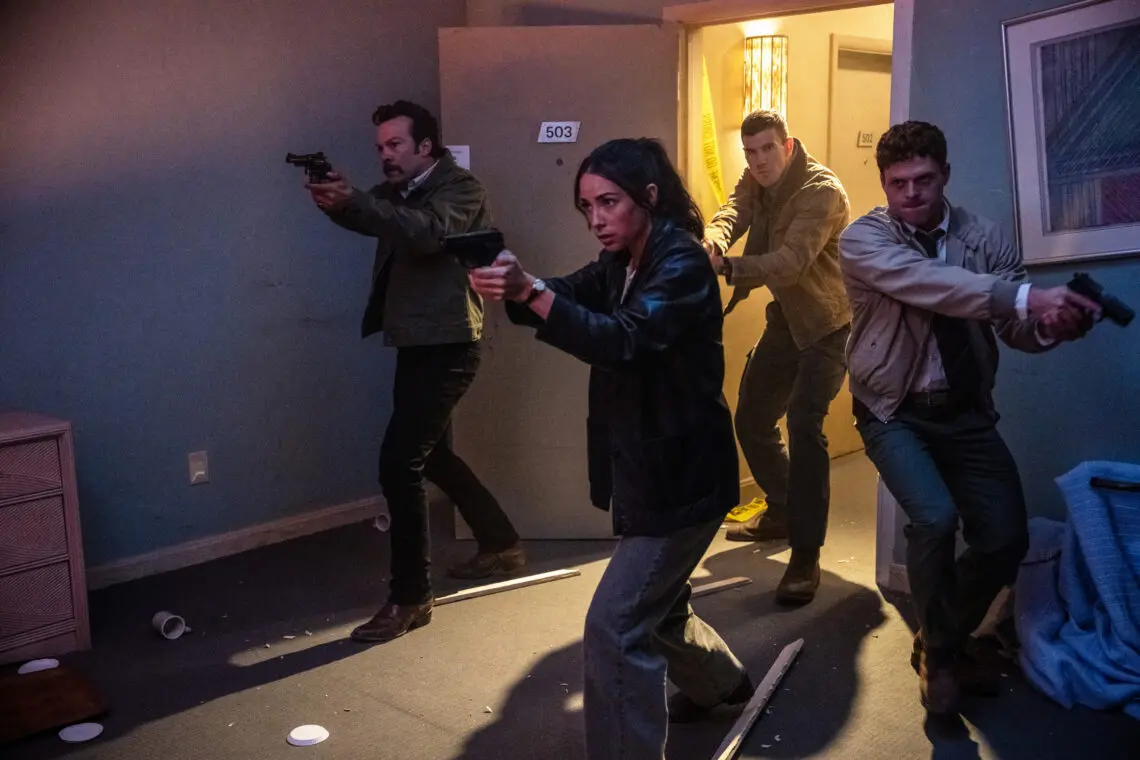Unveiling a new side of Leroy Jethro Gibbs in “NCIS: Origins”
A dive into Gibbs’ early days
Revisiting familiar characters under a new lens often brings excitement, but it also comes with the challenge of living up to past portrayals. With NCIS: Origins, the stakes are particularly high. The series promises a fresh perspective on Special Agent Leroy Jethro Gibbs, a character Mark Harmon made iconic over two decades. So, what does this prequel have in store for fans, both new and returning?
Gibbs: The elusive hero
Portrayed by Mark Harmon for an impressive 22 seasons, Gibbs remained an enigma despite numerous flashbacks and story arcs. His trajectory, marred by personal tragedies, carved him into a stoic, lone wolf character with a haunted look that never quite faded. But as the original NCIS series explored every nook and cranny of his past, some fans wondered if there was anything left unexamined about his early days.
The essence of “NCIS: Origins”
“NCIS: Origins” aims to answer this by exploring Gibbs’ beginnings, focusing on his journey through the Naval Investigative Service (NIS) before it became the NCIS we know today. Premiering on October 14, the series balances between the concise storytelling of weekly cases and the deeper, ongoing narrative. It offers a chance to correct past missteps, particularly the controversial death of Mike Franks in Season 8 of NCIS.
Mike Franks’ return
For many fans, Mike Franks’ untimely demise left a sour note. NCIS: Origins brings him back, explored through the fresh lens of actor Kyle Schmid, who steps into the 1991 shoes once filled by Muse Watson. Schmid successfully infuses the character with a blend of charm and roughness, making Franks a compelling ally to a younger Gibbs.
Cast dynamics: New faces in old roles
No prequel can thrive without acknowledging its roots and characters fans love. Interestingly, the approach taken in this series avoids relying on de-aging technology. Instead, Austin Stowell steps in to portray a younger Gibbs. While he offers a unique take on the character, his portrayal leaves room for debate among fans accustomed to Harmon’s performance.
Stowell’s Gibbs contrasts sharply with Harmon’s seasoned investigator. Driving into Camp Pendleton with Pearl Jam blasting seems to underline this shift—Gibbs was not always the quiet, brooding figure we’ve come to know. Instead, he is depicted as a burgeoning investigator, rough around the edges but filled with promise. The change brings a refreshing perspective that might take some adjusting but promises a nuanced portrayal over time.
In managing these transitions, Stowell hones in on Gibbs’ evolution. He subtly blends his booming natural voice with the quieter rasp familiar to fans. This effort is crucial, particularly as Harmon provides narration for the series.
Probing deeper into Gibbs’ psyche
The prequel isn’t just about solving crimes; it delves into Gibbs’ mental state post-trauma. Already burdened by personal loss, Gibbs grapples with professional challenges, hinted by his failed psych evaluation. Special Agent Cliff Walker (portrayed by Patrick Fischler) introduces a new dynamic, initially avoiding the ambiguous presentations of authority figures. Walker’s nervous demeanor adds an element of intrigue to their interactions.
Character interplay and growth
Franks brings a lighter, if politically incorrect, touch to the show. Scenes depict him as a mischievous, mustachioed mentor, leading to tension and humorous moments alike. His interactions, particularly in the locker room, where colleagues debate his potential misogyny, showcase the series’ willingness to tackle thornier issues. Yet, Franks remains lovable, hinting at potential growth and enlightenment as the story progresses.
Introducing a new love interest
Also featured is Lala Dominguez (played by Mariel Molino), a character set to disrupt Gibbs’ life in unpredictable ways. Facing accusations from Franks, her role may confront and transform Gibbs, adding a layer of emotional complexity to his journey. Molino’s portrayal is compelling, and her character’s arc promises intrigue and possibly heartbreak—emphasizing the series’ commitment to deep emotional storytelling.
A balancing act: nostalgia and novelty
While maintaining the procedural roots of the NCIS franchise, Origins doesn’t shy away from exploring personal stories. Episode 4, for example, brings Gibbs’ guilt to the forefront, tying his past losses to present-day dilemmas. The continued reference to his infamous Mexico mission, where he seeks vengeance for his family’s murder, is a pivotal plot waiting to unfold. This event, central to Gibbs’ character, builds anticipation and continuity within the series.
Old roots and new beginnings
Interestingly, Jackson Gibbs reappears, this time warning his son against the vendetta mission. Portrayed with more anger by Robert Taylor, this version of Jackson adds a fresh dynamic while staying true to the pivotal moment in Gibbs’ history.
The series also doesn’t forget to sprinkle humor and charm, seen when new female team members react to Gibbs’ entrance with clear interest—a nod to Stowell’s different yet engaging portrayal.
Ultimately, “NCIS: Origins” is about understanding the man behind the badge. As we follow this fresh yet familiar journey, expect a blend of action, personal growth, and revisiting essential moral conflicts that define Gibbs.
With its premiere set for October 14, this prequel promises to be a fulfilling addition to the NCIS universe, rekindling old flames and sparking new connections. Expect to get hooked all over again!
Stay with us for more on your favorite movies and TV shows, and join the conversation on social media.

 Italian
Italian







